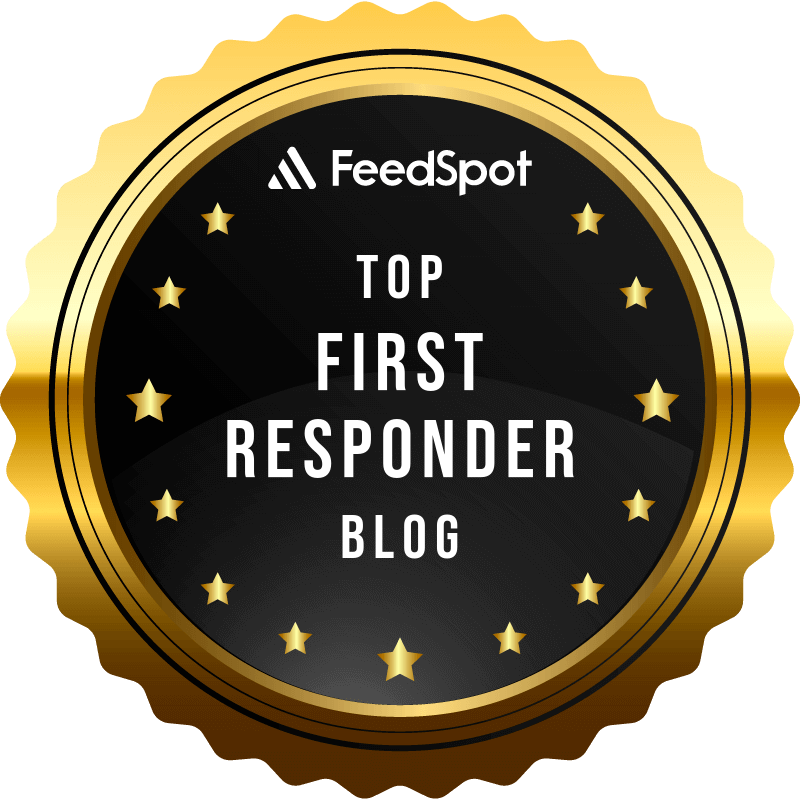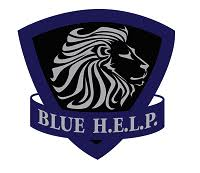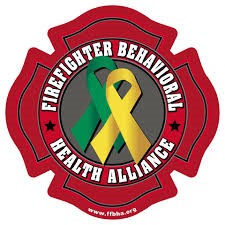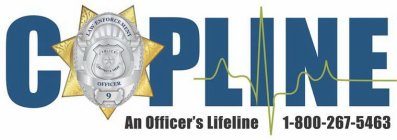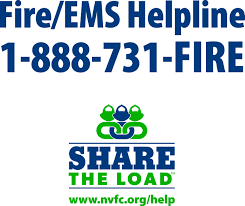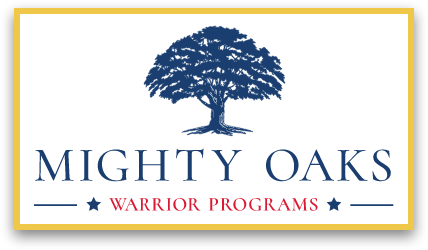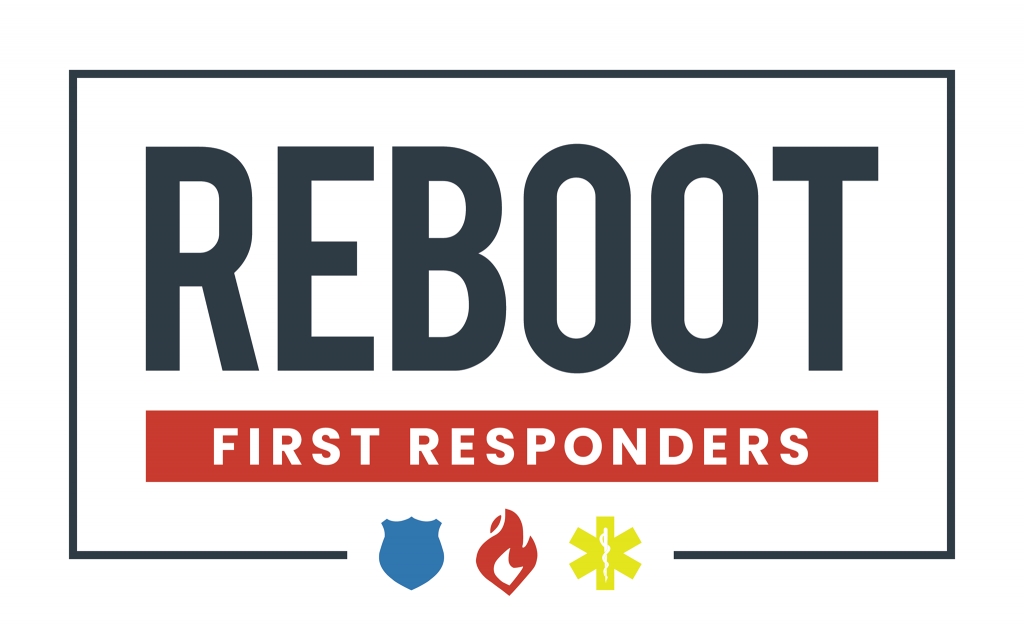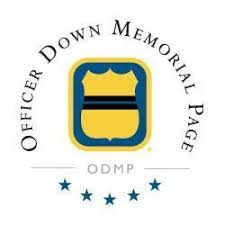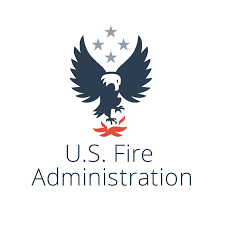It’s Time to Change the Culture
Why First Responders Do Not Seek Help
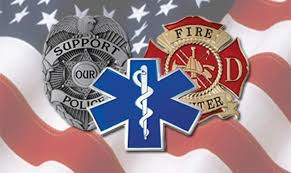 Seen as figures of authority within our communities, our Police Officers, Firefighters, and Medics may seem invincible. However, within the First Responder community there is the existence of the “us versus them” mentality. Because cops, firefighters, and medics create strong friendships with their peers, they tend to isolate themselves from outside relationships. This brotherhood becomes a source of protection from the physical portion of the job. However, it becomes a risk factor when it comes to mental health issues such as Post Traumatic Stress injury and Depression.
Seen as figures of authority within our communities, our Police Officers, Firefighters, and Medics may seem invincible. However, within the First Responder community there is the existence of the “us versus them” mentality. Because cops, firefighters, and medics create strong friendships with their peers, they tend to isolate themselves from outside relationships. This brotherhood becomes a source of protection from the physical portion of the job. However, it becomes a risk factor when it comes to mental health issues such as Post Traumatic Stress injury and Depression.
10Fear thou not; for I am with thee: be not dismayed; for I am thy God: I will strengthen thee; yea, I will help thee; yea, I will uphold thee with the right hand of my righteousness.
Isaiah 41:10 KJV
First Responders often feel they cannot talk to anyone other than their First Responder partners about job stress, bringing up the possibility that they will not be trusted on calls for service. This is the STIGMA that is associated with the job. This creates problems because the CULTURE maintains that mental health problems are a sign of weakness and failure. The fear of seeking help leaves the door open for tragedy.
Merriam-Webster’s Dictionary defines STIGMA as;
1a: a mark of shame or discredit
The most established definition of STIGMA was written by Erving Goffman;
Stigma is “an attribute that is deeply discrediting” that reduces someone “from a whole and usual person to a tainted, discounted one” [1] Thus, implying the stigmatized has a “spoiled identity.”
The National Alliance on Mental Illness describes STIGMA as “when someone, or even you yourself, views a person in a negative way just because they have a mental health condition. Some people describe stigma as a feeling of shame or judgment from someone else. Stigma can even come from an internal place, confusing feeling bad with being bad.”[2]
Merriam-Webster’s Dictionary defines CULTURE as;
1a : the customary beliefs, social forms, and material traits of a racial, religious, or social group also : the characteristic features of everyday existence (such as diversions or a way of life) shared by people in a place or time,
1b: the set of shared attitudes, values, goals, and practices that characterizes an institution or organization, and/or
1c: the set of values, conventions, or social practices associated with a particular field, activity, or societal characteristic
In regards to Public Safety, culture is the behaviors, values, attitudes, and beliefs not only of the individual organization but also within the entire First Responder family. This culture reflects what is right or wrong, good or bad, or what is acceptable behavior within the ranks.
Whether this story is true or not, it captures the themes of many organizational cultures.
Monkeys in a cage:
A group of scientists put five monkeys in a cage. In the center of the cage was a step ladder, and a banana was hung from the very top. The monkeys scurried up the ladder to retrieve the banana, and then the scientists sprayed them with cold water to prevent them from reaching it. Each time they tried to go up the ladder, they were again sprayed until none of the monkeys went up the ladder.
The scientists removed one monkey from the cage and replaced it with a new monkey. The new monkey saw the banana, saw the ladder, and attempted to go up. The four original monkeys, afraid of being sprayed with water, assaulted the new guy to prevent him from going up the ladder. He had no idea why he was being attacked but he didn’t go up the ladder again.
A second original monkey was removed from the cage and replaced with a new one. Same thing: the new monkey attempts to go up the ladder to retrieve the banana, and once again, this newest monkey is assaulted. Except this time, the first new monkey takes part in the beating of the newest monkey. He has no idea why he is participating in the beating, but it happened to him.
This process of bringing in new monkeys continues until there are no original ones in the cage that were sprayed with cold water. But no monkey in this now wholly new group dares go up the ladder out of fear of being assaulted, not sprayed with cold water.
Created over time, culture instills practices and habits into people without any knowledge of where the training or behavior had begun. As First Responders, we tend to do things the way we were told; we don’t question why, because that’s the “way it’s always been done.”
The First Responder cultures and work environments are not for the faint of heart. Like their Military counterparts, First Responders are a group of individuals whose survival must rely upon each other while putting themselves at risk every day for their communities. These are tough jobs, and the perception is that one must be tough to perform them. This culture gives the responder the feeling that he is invincible that he can handle anything. They do not want to appear weak, so they do not talk about what is bothering them. Constant exposure to traumatic and critical events increases the risk of Depression or PTSi.
First Responders continually see the worst of humanity. From the ravaging effects of Natural Disasters to aircraft and traffic collisions to the abuse of children and women, and the sights and sounds of violent crime. Couple that with the constant threat of personal and professional attacks, the constant stress and the inability to help those in need. Because of this, the First Responder carries a heavy burden. If our responder can make it to retirement, the alcohol, drug and mental health issues they buried while working may arise, magnifying the effects of PTSi and Depression.
It is agreed upon by those in the mental health field that people may struggle with the events they have dealt with while working; however, those affected are not always willing to discuss their issues with someone on the therapeutic level. Instead, those who are coping with Depression or PTSi may turn to self-medication, such as heavy drinking and other substance abuse, in an attempt to escape. Research studies indicate that a lack of wellness among First Responders may cause a rise in sick time usage, lawsuits, complaints, insubordination, and/or suicide.
The culture of First Responders dictates that mental health issues are a sign of weakness or failure. Furthermore, “pervasive within the culture is the traditional male values and macho identity.”[3] Many First Responders believe that if they seek help, they will put their job or position at risk. For the most part, First Responders do not trust those in management or those in control of their destiny. In a 2016 survey by the National Association of Emergency Medical Technicians, one respondent stated;
“Most of the people in my organization do not feel comfortable using any service provided by the organization for fear that the information will come back and be used against them in the future.”[4]
First Responders also fear the response of the community at large, not telling their families or close friends that they are suffering. They fear that people in the areas they serve will find out, possibly jeopardizing their authority.
In 2017, the University of Phoenix completed a survey in regards to First Responder’s mental health. The study revealed that there are stigmas associated with seeking mental health help on the job. Of those that say there are negative repercussions for seeking psychological help at work, the majority feel their supervisor will treat them differently. Other concerns are co-workers perceiving them as “weak” or resulting in them being passed over for promotions.[5] Here are some reasons that are given for not seeking help;
- Not feeling comfortable speaking to another person about their problems
- Not wanting people to perceive them as being weak
- Feeling judged by colleagues in their profession
- Feeling like it would affect their career/chance for a promotion

Photo courtesy of the University of Phoenix
To break this cycle, administrators must implement department-wide policies that force the culture to change. Personnel must have easy access to wellness resources, but, more importantly, the attitudes surrounding these programs need to improve. First Responders must not fear they will be punished or denied their next promotion if they receive therapeutic counseling or assistance after a traumatic incident.[6]
If you are a First Responder and are experiencing any of these signs;
- Withdrawing from other officers
- Feeling sad and hopeless for more than a few days
- Lack of energy, enthusiasm, and motivation
- Trouble concentrating
- Reckless drinking of alcohol
- Difficulty making decisions
- Being restless, agitated, and irritable
- Weight gain or loss out of the norm
- Sleeping more than usual (sometimes all day)
- Trouble with memory (out of character)
- Feeling bad about yourself or feeling guilty (signs that last for more than a few days)
- Anger and rage over something trivial (out of character)
- Feeling that you can’t overcome difficulties in your life
- Trouble functioning in your personal life (department discipline issues, divorce, the recent loss of immediate family member)
- Openly talks about suicide
- Taking unnecessary risks
You may be experiencing PTSi or Depression. You need to speak to someone you need help. If you are in the darkness you are in battle with evil; you are in a fight for your soul.
If you are untrusting of your Agency, you do not need to use the resources they make available for you. There are several groups and organizations that offer mental health services for First Responders. However, for complete healing, you must be on a solid foundation with God. God has plans for you so trust in him;
11For I know the thoughts that I think toward you, saith the Lord, thoughts of peace, and not of evil, to give you an expected end
Jeremiah 29:11 KJV
Two World-wide Organizations that offer Faith-Based healing to First Responders are Reboot Recovery (https://www.rebootrecovery.com/) and Mighty Oaks Warrior Programs (https://www.mightyoaksprograms.org/). Both are free for veterans and first responders.
Part of the Bridges to Healing Series, “The First Responder Healing Manual” by Chris & Rahnella Adsit, is an excellent resource for Biblical-based healing. Both Chris and Rahnella Adsit are experts in the field of PTSi and have counseled thousands of Active Duty Military, Veterans, and First Responders and their families who have been injured by service-related stress and trauma.
Do not let fear keep you from getting help, the Bible says;
14Where no counsel is, the people fall: but in the multitude of counselors, there is safety.
Proverbs 11:14 KJV
IF YOU HAVE THOUGHTS OF SUICIDE GET HELP NOW
Law Enforcement Copline (800) 267-5463
Firefighters / Medics Fire/EMS HELPLINE (800) 731 3473
The Christian Life is not a constant high. I have my moments of deep discouragement. I have to go to God in prayer with tears in my eyes, and say, ‘O God, forgive me,’ or ‘Help me.’
Billy Graham
- Goffman, Erving “Stigma: Notes on the Management of Spoiled Identity” page 3, Englewood Cliffs NJ: Prentice Hall; 1963. ↑
- National Alliance on Mental Illness (NAMI) article “stigma free” https://www.nami.org/stigmafree ↑
- Violanti, J. M. (2010). Police suicide: a national comparison with fire-fighter and military personnel. Policing, 33(2), 270-286. ↑
- National Association of Emergency Medical Technicians (2016) National Survey on EMS Mental Health Services ↑
- University of Phoenix First Responder Mental Health Survey (April 18, 2017) http://www.phoenix.edu/firstresponders ↑
- Malmin, Mark (2012) “Changing Police Subculture” FBI Law Enforcement Bulletin ↑


